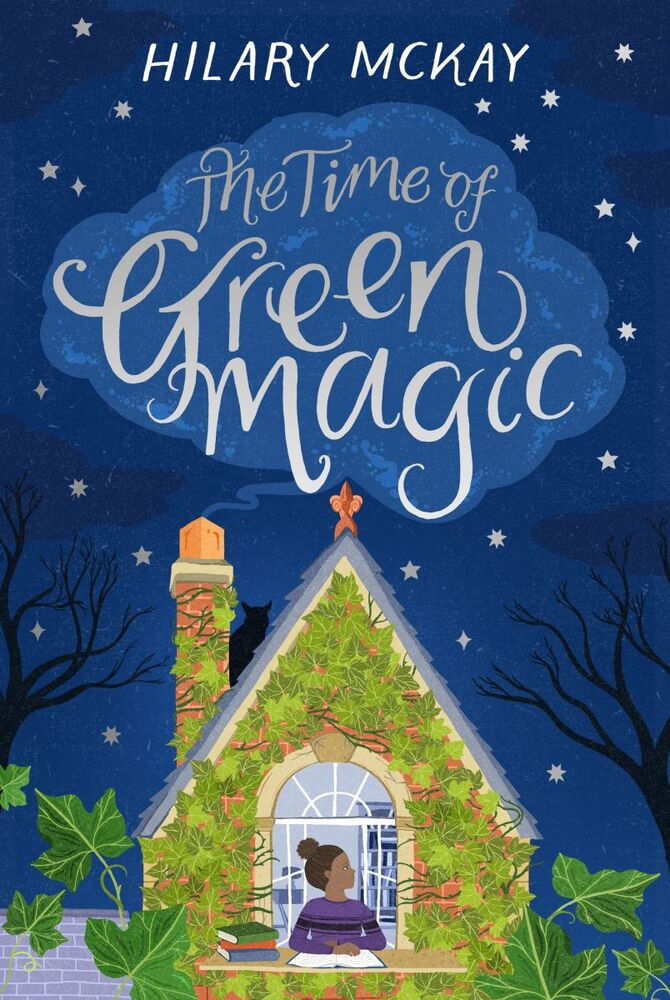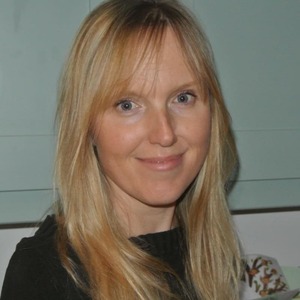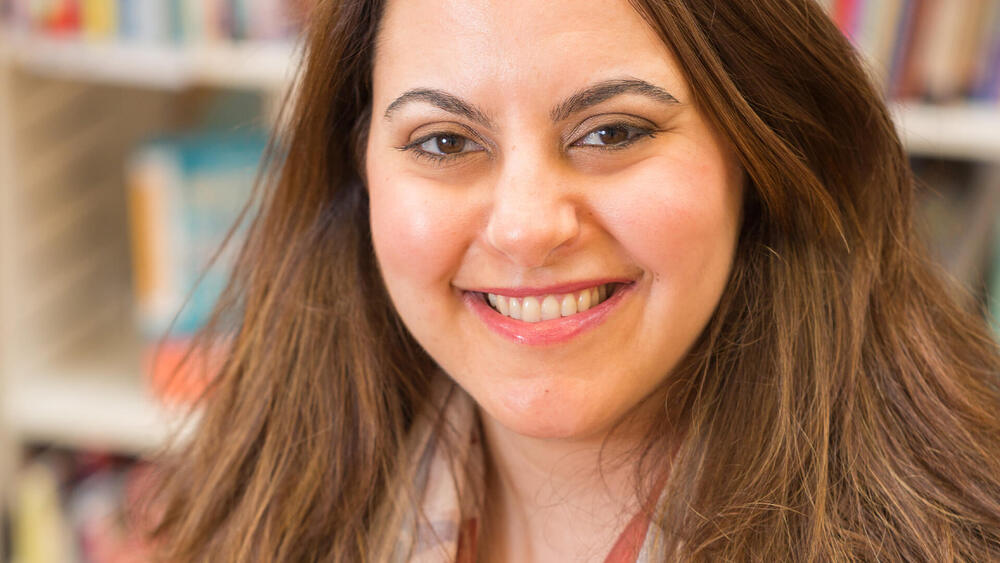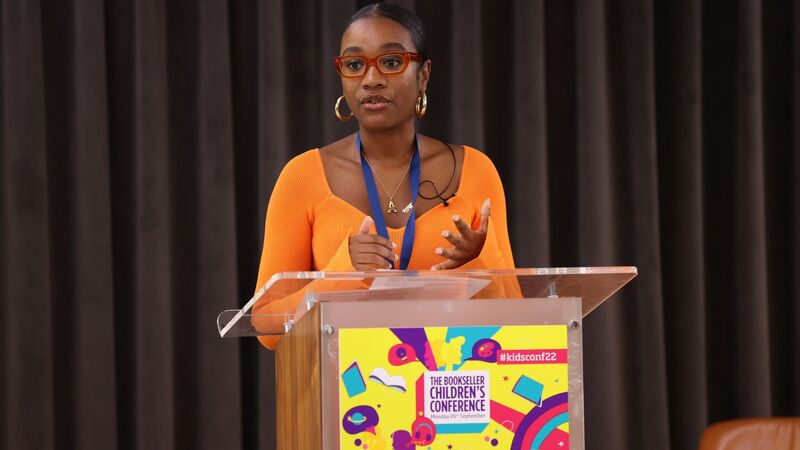You are viewing your 1 free article this month. Login to read more articles.
Hilary McKay | 'You can’t have random magic floating in when it’s convenient'
After career-altering acclaim for her previous novel, Hilary McKay turns from a land of war to one of magic.
"When I was writing it, I thought, ‘This is working out better than they usually do,’" says Hilary McKay of her 2018 novel The Skylarks’ War. "I had the feeling it was pulling itself off the page a bit more." The book follows the fortunes of a family growing up against the backdrop of the First World War, and has been McKay’s biggest critical and commercial success for years.
 In January, it won the Costa Children’s Book of the Year and was picked for the coveted Waterstones Book of the Month slot; that was followed by a British Book Awards shortlisting in May. "I didn’t know what to expect," she admits when she speaks to me from her home in rural Derbyshire. "It’s an odd book. It doesn’t categorise very well and it covers a huge span, which is unusual in children’s books." The Skylarks’ War’s many fans will be thrilled to hear that she is writing a sequel. "We’re calling it a companion book," she explains; it will be set during the Second World War. She will revisit some of the original characters, "although they will be older", and is introducing a new generation of three central characters, who "are just getting alive" in her mind. "I have to find out a lot about them: where they live, how they think, who their next-door neighbours are, and I write all that down until they start to lift off the paper and talk for themselves."
In January, it won the Costa Children’s Book of the Year and was picked for the coveted Waterstones Book of the Month slot; that was followed by a British Book Awards shortlisting in May. "I didn’t know what to expect," she admits when she speaks to me from her home in rural Derbyshire. "It’s an odd book. It doesn’t categorise very well and it covers a huge span, which is unusual in children’s books." The Skylarks’ War’s many fans will be thrilled to hear that she is writing a sequel. "We’re calling it a companion book," she explains; it will be set during the Second World War. She will revisit some of the original characters, "although they will be older", and is introducing a new generation of three central characters, who "are just getting alive" in her mind. "I have to find out a lot about them: where they live, how they think, who their next-door neighbours are, and I write all that down until they start to lift off the paper and talk for themselves."
But before all that—and despite calling herself "a really slow writer"—she has a new standalone Middle Grade novel out this September. The Time of Green Magic sees 12-year-old Abi and her new step-family move to an eerie, ivy-covered house. Once the children are alone, strange things begin to happen and real magic seeps in: Abi tumbles into books rather literally, and a startling creature starts to visit in the night. The fragile new family must work together to solve it.
Moving on
McKay suspected she wasn’t finished with The Skylarks’ War but wasn’t quite ready to revisit it, so The Time of Green Magic was initially "a change from the war stories". Her starting point was books, and specifically, the power of reading to transport us. She was inspired by the very old-fashioned books she had discovered at her grandparents’ house as a child. "There was The Kon Tiki Expedition [by Thor Heyerdahl] and a book about the Antarctic and a caving book. You had to skip huge chunks to get to the adventure, but when you got there it was stunning. I wondered if modern children would get anything out of it." At the same time, she saw a documentary about the "fascinating and beautiful" Chauvet Cave in southern France, home to a number of figurative cave paintings. Her story began to take shape: her child characters would discover these books and, in the house of green magic, be transported.
She also wanted to explore how a blended family could evolve. "It was about putting two families together where, although the parents wanted to be together, it was very complicated for the children." McKay’s protagonist Abi is of dual heritage: Abi’s mother is dead, her father marries Polly, and suddenly Abi has two step-brothers. "It’s hard for an only child to become a middle child," McKay says. "She escapes by reading books." Little Louis, whom McKay fondly describes as "such a pest", is lonely and uncertain and he conjures up an animal companion, a storyline which drives much of the narrative. Finally there is Max, on the brink of adolescence, "stepping out into a different life away from childhood".
McKay returns to families again and again in her writing, from the Conroy sisters of The Exiles to the Cassons of Saffy’s Angel. It is, she says, the universality that lures her. "I think they are the basic building blocks of a child reader. A child has a family, whether it’s one that ‘works’ or not." The new family moves to the strange ivy-covered house which, with its Narnia lamp, has a sense of enchantment but is "not entirely friendly at the beginning". But it is a place to grow, to compromise and understand. "As they work on making themselves a family, the house becomes a home."
And then there is the magic itself. McKay was intrigued by the idea of a time-slip storyline and needed a way to bring her characters back home. There’s a sense that the green magic could run wild, and she agrees it would have been easy to let that happen. But she discovered, when writing, that "you can’t have random magic floating in when it’s convenient". Magic, she asserts, needs to be logical in order for children to believe it. "I had to give it a couple of rules. One was that it faded; when you close the book it was like a dream begins to fade from the observer. And the other was that it had to be believed in order to work. Max, at first, doesn’t contemplate it—until he falls in love."
Moving on
McKay has been a published author since the early 1990s when her début, The Exiles (reissued by Macmillan this summer), won the Guardian Children’s Fiction Prize. She has written well over 50 children’s books, from young fiction series to fairytale retellings and family sagas. What changes, I ask, has she seen in children’s books over that time? She’s very funny on that eternal bugbear of children’s authors: how to get the parents out of the way. "How can you write books with helpful parents around!" she laughs. Modern children, she explains, pose all sorts of challenges with their pesky mobile phones and limited physical freedom. "But a lot of them do have two working parents, which is very helpful."
In The Time of Green Magic, art student babysitter Esme is "a sort of adult character that could be left with them but was not going to be interfering". McKay does, however, laud technology for "hugely increasing" the quality of books, enabling writers to "make their text as immaculate as possible". She also appreciates the community aspect of the internet: "Even if you live in the middle of nowhere, as I do, you can be involved and I think that’s wonderful." I always love talking to authors about which other books they enjoy and McKay is particularly generous in her endorsements, picking out Annet Schaap’s Lampie and the Children of the Sea (Pushkin Press) as a recent favourite, along with the work of Katherine Rundell, Sophie Anderson and Kiran Millwood Hargrave. It’s clear that reading is her passion just as much as writing, and I suspect a book about the act of reading is something she has wanted to write for a long time. As one of her child characters explains "You have to be reading deeply... With all of you. You know, how you read so everything else goes away." Or, as McKay herself says, "it’s pretty close to magic, actually."








